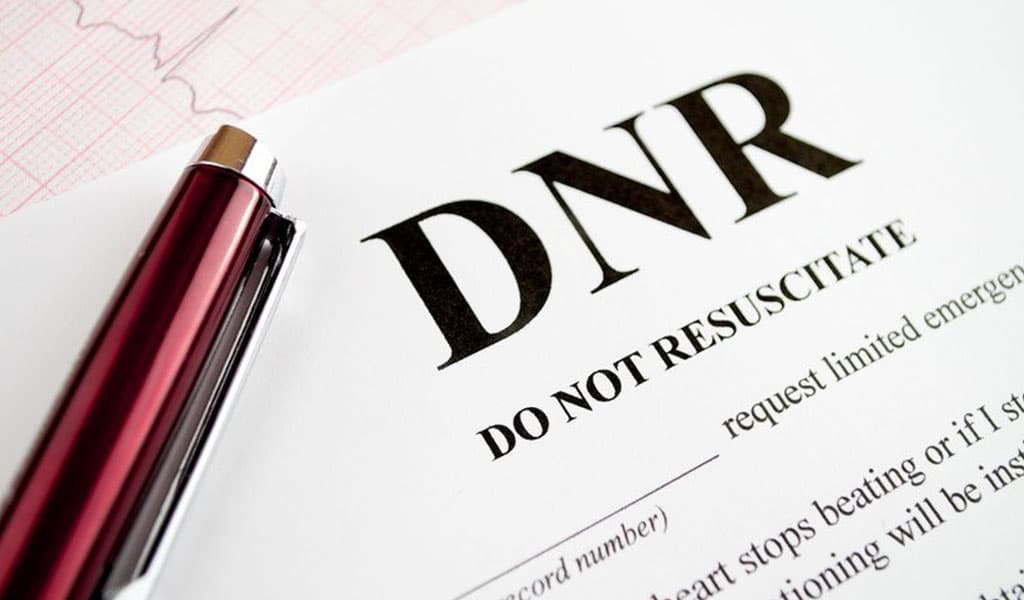Out-of-Hospital DNR
What It Is, and Why You May Need One
Most people understand the need for an advanced directive and medical power of attorney. These documents are especially important for patients with terminal illnesses. Many people near the end of life do not wish to be resuscitated or subjected to heroic procedures. In the event they stop breathing or their heart stops, they’d strongly prefer to die a natural death.
However, many people don’t know that a document stating those wishes may not apply if there’s a medical emergency outside of a hospital. If emergency medical professionals (EMS) are called to help, a document in a file at the doctor’s office won’t be helpful. That’s why it’s important to consider creating an Out-of-Hospital Do Not Resuscitate order, or O-O-O DNR.
“We always go over this as part of our intake and assessment process, because many families are not aware of this document,” said Robin Trenary, Community Liaison/Quality Assurance for Cambridge Caregivers. “It gives patients some control over how much medical treatment they receive, should an emergency occur at home or anywhere outside of a hospital.”
No Heroic Measures
With a Texas Out-of-Hospital DNR order, emergency medical professionals cannot start or continue:
- Cardiopulmonary resuscitation (CPR: chest compressions and airway)
- Advanced airway management (clearing the airway, usually with a breathing tube)
- Artificial ventilation (machine or procedure to restore breathing)
- Defibrillation (electrical shock to the heart with a defibrillator machine)
- Transcutaneous cardiac pacing (electrical impulses to the heart using electrodes attached to the skin)
For a person near the end of life, these measures can be painful and invasive, and usually are unlikely to prolong life in any meaningful way. Studies show that, despite its reputation as a lifesaver, CPR may cause more harm than good for the elderly and medically frail.
If a patient wishes to avoid these kinds of measures, it’s important to have an Out-of-Hospital DNR – and to have it in a location that’s easily accessible in the event of an emergency.
“If someone stops breathing, and EMS arrive, then the paramedics are required by law to start resuscitation attempts,” said Trenary. “EMS must proceed if the family can’t locate the DNR, even though that may go against the patient’s express wishes. That’s why it is important to not only have the document but also to know where to find it, at all times.”
Texas Form Required
To be valid in Texas, families must use the Texas form. Completing a form is free and does not affect the patient’s will, estate, or finances, or their health or life insurance premiums. The document must be signed by the patient’s doctor and two witnesses. (Specific instructions for who may serve as a witness are included with the form.)
The form does not prevent treatment and medicine to reduce pain and does not allow mercy killing or assisted suicide. It is not necessary to involve a lawyer or notary to complete the form, which can be canceled (revoked) at any time.
In addition to the form, some people opt to wear an identification bracelet or necklace proving they have an Out-of-Hospital DNR. However, there are specific requirements in Texas: it must be a plastic bracelet with the word “Texas” and the words “Do Not Resuscitate” (or the shape of the State of Texas and the word “STOP” over the shape); or you may choose a metal bracelet or necklace with the words, “Texas Do Not Resuscitate – OOH.” More information, and addresses for ordering approved bracelets or necklaces, is available here (click on “DNR Medical Devices.”)
Download the Texas Out-of-Hospital DNR form and instructions for completing it, along with frequently asked questions here.
Four Key Documents
Is your paperwork in order? Here are four important documents to consider:
An In-Hospital DNR order tells hospital staff not to resuscitate you.
An Out-of-Hospital DNR order instructs emergency medical personnel, hospital emergency room staff, nursing home staff, and other health care professionals not to resuscitate you at home, in a long-term care facility, or while you’re out in the community.
A Directive to Physicians tells your doctor to withhold or withdraw certain life-saving treatments if your doctor certifies that your condition is terminal or irreversible.
A Medical Power of Attorney tells another person you chose to make health care decisions for you, in the event you become incompetent or cannot make your wishes known to your doctor.




